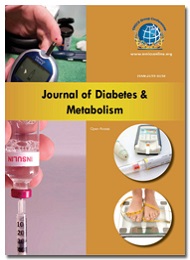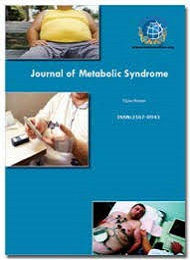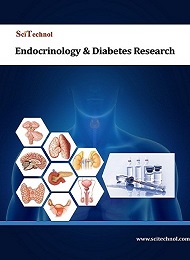Theme: Collaborative Strategies to Fight Human Metabolic Disorder
Human Metabolism 2020
Join us for 26th International Conference on Human Metabolic Health- Diabetes, Obesity & Endocrinology
Update your skills, enhance your knowledge base, and broaden your horizons—all in one place!
Human Metabolism, Metabolic Diseases, Diabetes, Obesity, Endocrinology, Healthcare Management, Cardiometabolic Diseases
Date: June 22-23, 2020
Venue: Abu Dhabi, UAE
If you are interested to be a part of this event as a speaker or delegate!
Email: humanmetabolism@memeetings.com
Call: 1-201-380-5561 (Extension No- 7005)
WhatsApp: +44 7723584505
ME Conferences feel proud to announce the "26th International Conference on Human Metabolic Health- Diabetes, Obesity & Endocrinology" scheduled through June 22-23, 2020 with a theme, “Collaborative Strategies to Fight Human Metabolic Disorder”.
ME Conferences organizes a thousand International Conferences each year across the Middle East & Europe region with support from a lot of scientific societies and publishes 500+ Open access journals that contain over 50000 eminent personalities, 50,000 acknowledged scientists as editorial board members and five million readers.
Diabetes Overview:
Diabetes is a chronic disease that happens either once the exocrine gland doesn't produce enough insulin or once the body cannot effectively use the insulin it produces. Insulin is a hormone that regulates blood glucose. The metabolic syndrome is a cluster of the most dangerous coronary failure risk factors: diabetes and prediabetes, abdominal obesity, high cholesterol, and high-pressure level. In 2014, 8.5% of adults aged eighteen years and older had diabetes. In 2015, diabetes was the direct reason behind 1.6 million deaths and in 2012 high blood sugar was the reason behind another 2.2 million deaths.
Obesity Overview:
Overweight and corpulence together make up one of the main preventable reasons for death in the U.S. Stoutness is an incessant sickness that can genuinely influence your wellbeing. Overweight implies that you have additional body weight, and stoutness implies having a high measure of additional muscle to fat ratio. Being overweight or fat raises your hazard for medical issues. These incorporate coronary illness, type 2 diabetes, asthma, elevated cholesterol, hypertension, rest apnea, and certain sorts of disease. General wellbeing specialists concur that overweight and corpulence have achieved pandemic extents in this nation and around the globe. More than 33% of U.S. grown-ups are corpulent. Individuals ages 60 and more seasoned will probably be corpulent than more youthful grown-ups, as per the latest information from the National Wellbeing and Nourishment Examination Overview. Furthermore, the issue additionally influences kids. Around 17%, of U.S. youngsters and youths ages 2 to 19 are stout
Endocrinology Overview:
How could it be that people and creatures keep up very steady blood centralizations of glucose for the duration of their lives regardless of fiercely shifting frequencies of dinners? In the event that your blood glucose focus drops much beneath 1 mg for each ml, your neurons will start to get into mischief, driving at last to trance-like state and passing. However, skipping breakfast is infrequently hazardous. The appropriate response is that a battery of substance couriers - hormones - are emitted into blood because of rises and falls in blood glucose focus and animate metabolic pathways that maneuver glucose fixations again into the typical range.
Scope and Importance of Human Metabolism Conference 2020:
Diabetes is one of the rising diseases that is turning into quite common these days. Diabetes is a metabolic disease during which the individual has high blood glucose (sugar), either as a result of insulin production is insufficient, or as a result of the body's cells don't respond properly to insulin or both. Patients with high blood glucose can experience polyuria (frequent urination), polydipsia (excessive thirst) and polyphagia (frequent hunger). With the modification in lifestyle, our endocrine system of the body is getting disturbed. Health care is very important as diseases like diabetes, that is a metabolic syndrome is getting increases day by day. In order to induce innovatively, the meeting will concentrate on the most recent and exciting innovations in all areas of endocrinology research providing a unique chance for international explorers to assemble, network, and grasp new scientific innovations. The studies are a lot of connections with topics like Current Advances in Endocrinology & Metabolism; Chemistry, Physiology, and Disorders associated with Hypothalamus-Pituitary Axis, Thyroid and Parathyroid glands and its Disorders, Reproductive Endocrinology, Obesity, Diabetes Disorders and Treatment, Energy Balance and Obesity, Treatment and Identification of Endocrine Diseases, Surgery, Mechanism of action of Peptide Hormones and Receptors and Steroid Hormones and Receptors, Glycoprotein Hormones (LSH, FSH, TH, hCG, POMC), Somatotropin family (GH, hCS, Prolactin), Adrenal Hormones and Endocrine regulation. The speech involves the main area to be covered so that at a brief time, we are able to discuss and realize the means and create a brand new discovery within the field of Diabetes and Endocrinology.
Why to attend Human Metabolism Conference 2020???
Medical doctors, patients, and health care providers take into account the prevention of diabetes, obesity & endocrinology syndrome as a vital tool to enhance the overall health status of the population. The proportions of individuals affected by diabetes, high blood pressure & Metabolic Syndrome are expected to extend in the future according to a recent statistical survey. Realizing this imperative, ME Conferences is ready to organize " 26th International Conference on Human Metabolic Health- Diabetes, Obesity & Endocrinology " for the coming year with a view to boost research and promote awareness aiming in developing solutions for the challenges encountered.
Target Audiences of Human Metabolism Congress 2020:
- Dietician
- Doctorates
- Scientists
- Bariatric physicians
- Physicians
- Nutritionist
- Researchers
- Cardiologist
- Diabetologists
- Dialectologists
- Endocrinologists
- Pediatric Doctors
- Training Institutes
- Healthcare Professionals
- Biochemistry Professors
- Fitness Professionals
- Academic Professionals
- Medical Hospitals
- Medical and Pharma Companies
- Diabetes Societies and Associations
- Manufacturing Medical Devices Companies
Benefits of joining webinar:
TRACK 1-Cardio Metabolic Disorder
The cardiometabolic disorder, an intriguing star grouping of maladaptive cardiovascular, renal, metabolic, prothrombotic, and provocative irregularities, is currently perceived as an illness element by the American Society of Endocrinology, National Cholesterol Education Program, and World Health Organization, among others. These cardiovascular and metabolic confusions independently and reliably lead to a considerable increment in cardiovascular malady (CVD) grimness and mortality, making the cardiometabolic disorder a built up and solid hazard factor for untimely and serious CVD and stroke. Set up and advancing treatment systems including moderate physical movement, weight decrease, through pulse control, adjustment of dyslipidemia, and glycemic control have demonstrated useful in turning around these strange reactions and diminishing the CVD hazard.
-
High blood sugar
-
High blood pressure
-
Olanzapine (Zyprexa)
-
Quetiapine (Seroquel)
-
Thioridazine (Mellaril)
-
Chlorpromazine (Thorazine)
-
Quitting smoking losing weight
TRACK 2- Nutrition and Human Metabolism
Carbohydrates, lipids, and proteins are the main components of foods which support the human body as fuel molecules. The digestion (disintegration into smaller parts) of these nutrients in the food tract and the subsequent absorption (entering the bloodstream) of the digestive end products make it possible for tissues and cells to transform the potential chemical energy of food into useful work. The major absorbed end products of food digestion are monosaccharides, mainly glucose (from carbohydrates); monoacylglycerol and long-chain fatty acids (from lipids); and small peptides and amino acids (from protein).
-
Cell metabolism
-
Catabolism
-
Co-enzymes
-
Anabolism
-
Xenobiotics and redox metabolism
TRACK 3- Obesity
Obesity is most commonly caused by a combination of excessive intake of food, lack of physical activity and susceptibility to genes. A few cases are caused primarily by genes, endocrine disorders, medications, or mental disorder. The belief that obese people eat less and gain in weight due to a slow metabolism is not confirmed scientifically. On average, obese people have greater energy expenditure than their normal equivalents due to the energy required to maintain an increased body mass. Obesity is most commonly caused by combining high consumption of foods, lack of physical activity and genetic susceptibility.
-
Diet and obesity
-
Genetics of obesity
-
Obesity in pets
-
Management of obesity
-
Control of obesity
TRACK 4- Child Nutrition and Obesity
Childhood nutrition refers to the dietary needs of healthy children aged 2 years through 11 years of age. A Sound eating routine helps youngsters develop and learn. It likewise aides forestall obesity and weight related Infections. This includes healthy sources of protein, limited junk food, consumption of milk and water instead of high energy drinks, etc. Childhood obesity is a disorder in which excess body fat has a detrimental effect on the health or welfare of a child. The diagnosis of obesity is often based on Body index mass, as methods for specifically measuring body fat are difficult. It is recognized as a serious public health issue due to the growing prevalence of obesity in children, and its many adverse health effects.
-
Body mass index
-
Childhood cancer
-
Childhood disease
-
Heart disease
-
Ecology of food and nutrition
TRACK 5- Diabetic Kidney Disease
Diabetic neuropathy disease is a type of diabetes-caused kidney disease. They can't filter blood like they should when your kidneys are impaired which can allow waste to build up in your body. Diabetes-related kidney damage usually occurs gradually over many years. Diabetes-induced kidney damage usually occurs slowly, over many years.
-
Blood glucose
-
High blood pressure
-
Cholesterol
-
Heart attack
TRACK 6- Diabetes Oral Medications
Medications utilized in diabetes treat diabetes mellitus by bringing down glucose levels in the blood. With the exemptions of Insulin, eventide all are controlled orally and are hence called oral hypoglycaemic specialists or oral ant hyperglycaemic operators. There are various classes of hostile to diabetic medications, and their choice relies upon the idea of the diabetes, age and circumstance of the individual, just as different variables. Diabetes mellitus type 1 is an ailment brought about by the absence of insulin. Insulin must be utilized in Type I, which must be infused. Diabetes mellitus type 2 is an infection of insulin obstruction by cells. Type 2 diabetes mellitus is the most well-known sort of diabetes. Medications incorporate specialists that expansion the measure of insulin discharged by the pancreas.
-
Sulfonylureas
-
Oral hypoglycemic agents
-
Pramlintide
-
Meglitinides
-
Thiazolidinedione’s
TRACK 7- Pediatric Endocrinology and Metabolism
Pediatric endocrinology is a uplifting sub forte managing issue of the endocrine organs, for example, varieties of physical development and sexual improvement in adolescence, diabetes and some more. By age, pediatric endocrinologists, contingent on the age scope of the patients they treat, care for patients from early stages to late youth and youthful adulthood. Pediatric endocrinologists are normally the essential doctors engaged with the therapeutic consideration of babies and youngsters with intersex issue. Numerous pediatric endocrinologists have interests and mastery in bone digestion, lipid digestion, juvenile gynecology, or characteristic blunders of digestion.
-
Lipid digestion
-
Pituitary issues
-
Endocrine organs
-
Bone digestion
-
Juvenile gynecology
TRACK 8- Advances in Endocrinology Metabolism
Treat patients with hyperparathyroidism, Address particular issues of Graves' disease as well as thyrocardiac ailment, dermopathy, ophthalmopathy, mammary, late pregnancy, the ordinarily experienced adrenal and pituitary issue (clinical cases), Counsel patients on ripeness matters while being dealt with for growth, Provide the best treatment for transgender patients, Use the new lipid bringing operators and how down to oversee quiet who can't take statins. the biochemical strides of creation of mineralocorticoids, glucocorticoids or sex steroids from cholesterol by the endocrine organs.
-
Mineralocorticoids
-
Addison’s disease
-
Metabolic syndrome- diagnosis and treatment
-
Endocrine disruptors
-
Gitelman syndrome
TRACK 9- Molecular Metabolism
Molecular Metabolism is focused on filling in as a stage detailing achievement disclosures in vitality homeostasisand in the etiology, advancement, treatment and related wellbeing results of metabolic disorders, for Example, obesity, diabetes, cardiovascular ailment and disease. Molecular Metabolism is dedicated to serving as a reporting platform for breakthrough discoveries in energy homeostasis and related health, etiology, development and treatment consequences of metabolic disorders such as obesity, diabetes, cardiovascular disease and cancer.
-
Intercellular metabolic relationship
-
Biochemical studies
-
Newborn screening
-
Clinical management
-
Fat Metabolism
TRACK 10- Advanced Treatment for Diabetes
Monitoring blood glucose (blood sugar) is the main tool you need to monitor your diabetes. Blood glucose control (blood sugar) is the primary tool you need to monitor your diabetes .The artificial pancreas bridges the gap between two already existing pieces of diabetes technology: the insulin pump and the continuous blood glucose monitor (CGM). Relatively, a large percentage of world population is affected by diabetes mellitus, out of which approximately 5-10% with type- 1 diabetes while the remaining 90% with type 2. Insulin administration is essential for type 1 patients while it is required at later stage by the patients of type 2 diabetes.
-
Artificial pancreas
-
Glucose sensors
-
Bariatric surgery versus intensive medical and conventional therapy
-
New insulin delivery system
TRACK 11- Endocrine-Related Tumors
The tumorigenesis of sporadic endocrine tumors is silent not fully understood. Activating point mutations of the serine/threonine kinase gene BRAF (human gene that encodes a protein) located on 7q34 are originate in a comprehensive range of malignancies, with the highest frequency (66%) occurring in malignant melanomas. Melanomas are tumors of neural-crest-derived cells as are medullary thyroid carcinomas, pheochromocytomas and Paraganglioma. BRAF has not been scanned in endocrine tumours of the diffuse neuroendocrine system or of neural-crest-derived cells. Cancers in endocrine organs —such as prostate, breast, pituitary, ovaries, testes.
-
Pheochromocytomas
-
Paragangliomas
-
Tumorigenesis
-
Thyroid carcinomas
-
Neural-crest-derived cells
TRACK 12- Diabetes Complication and Management
The main aim of diabetes impediment and management is to bring carbohydrate metabolism to a normal state. In order to achieve it, patients with insulin insufficiency are with insulin injections or pumps and patients with insulin resistance are treated with proper diet maintenance and exercise. The other complication produced due to other disease is to be treated or prevented. Conserving a healthy diet is best to have a healthy living with or without diabetes. Diabetes is the main factor for cardiovascular disease, enlargement of other secondary conditions. Regular check-ups and medication on blood pressure, cholesterol, LDL, HDL and triglyceride levels, eye examination to prevent diabetic retinopathy.
-
Cardiovascular disease
-
Triglyceride levels
-
Diabetes occurrence
-
Carbohydrate metabolism
-
Diabetic retinopathy
TRACK 13- Diabetic Eye Diseases
Diabetic eye disease is a group of eye problems that can effect individuals with diabetes. These conditions incorporate diabetic retinopathy, diabetic macular edema, waterfalls, and glaucoma. After some time, diabetes can make harm your eyes that can rapid poor vision or even visual impairment. However, you can find a way to anticipate diabetic eye malady, or shield it from deteriorating, by dealing with your diabetes. The most ideal approaches to deal with your diabetes and keep your eyes solid are to deal with your blood glucose, circulatory strain, and cholesterol, now and then called the diabetes ABCs, if you smoke, get help to stop smoking, have an inflamed eye test once per year.
-
Bariatric surgery
-
Medications for obesity
-
Islet cell transplantation
-
Morbid obesity treatment
TRACK 14- Neurometabolic Disorder
Neurometabolic variations from the norm are scattered that effect how the brain (and additionally different organs) work. They occur in youthful off spring, all things considered, races and sexual orientations. Neurogenetic illness is the umbrella term of unending maladies which depict the brain variations from the norm (capacity and structure) that happen following changes in the qualities of the youngster this reason certain cerebrum cells to create and work unusually.
-
Neurogenetic disorder
-
Brain function disorder
-
Neurometabolic integration
-
Neurometabolic supplements
TRACK 15- Diabetes and Weight Loss
Cutting back on just one meal can affect the delicate balance of blood sugar, insulin, and medication in yourBody. So it's important to work with an expert when you diet. Unintentional or unexplained weight loss can becaused by a number of things, including depression, certain medication and diabetes. In people with diabetes, insufficient insulin prevents the body from getting glucose from the blood into the body's cells to use as energy. When this occurs, the body starts burning fat and muscle for energy, causing a reduction in overall body weight.
- Nutrition & Diabetes
- Medication
- Depression
- Insufficient insulin
- Diet
Track 16: Diabetes Mellitus
Diabetes mellitus is a constant infection brought about by acquired and additionally gained inadequacy in the creation of insulin by the pancreas, or by the insufficiency of the insulin delivered. Such an inadequacy results in expanded groupings of glucose in the blood, which thusly harm huge numbers of the body's frameworks, specifically, the veins and nerves.
-
Type 1 diabetes
-
Type 2 diabetes
-
Gestational diabetes
-
Inhalable insulin
-
Diabetes Symptom
-
Molecular endocrinology of breast Cancer
-
Sympathomimetic drugs
Scope and importance of Human Metabolism Conference 2020
Diabetes, Obesity and Endocrinology Disorders is a research division that deals with endocrine glands and related disorders and contracts metabolic disorder with irregular chemical reactions in the body. Endocrinology comprises the study of hormones, the endocrine system, and their role in the physiology of the body. Endocrinology is a department of medicine which manages with the diagnosis and treatment of diseases related to hormones and also diagnostic evaluation of a wide variety of symptoms and deviations and the long-term management of disorders of lack or excess of one or more hormones. Diabetes mellitus (DM), commonly mentioned to as diabetes, is a set of metabolic disorders in which there are high blood sugar levels over extended period. Symptoms of high blood sugar include increased thirst, frequent urination and increased hunger. If left untreated, diabetes can cause many complications. A metabolic disorder can occur when unequal chemical reactions in the body modifying the normal metabolic pathway.
Rising occurrence of lifestyle based diseases coupled with increasing geriatric population with high susceptibility in the direction of developing chronic diseases such as kidney and cancer disorders are some major factors driving the metabolic testing market. Further technical advancements such as the summary of digital metabolic rate testing equipment and quickly increasing healthcare expenditure levels are also expected to fuel market growth during the forecast period.
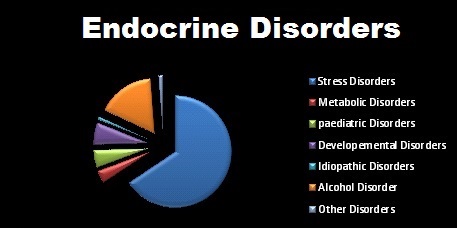
Obesity risk Report in Abu Dhabi
The task force of Abu Dhabi Childhood Obesity, which consists of 12 government agencies, had developed a comprehensive plan to address childhood obesity in the emirate. The plan is a result of a cross-sector evaluation that assessed existing efforts to fight childhood obesity, challenges and opportunities, More girls than boys were overweight (22.9% vs. 20.2%; P < or = 0.001). Non-citizen girls were more likely to be obese ([ OR ] 1.767 odds ratios, 95% confidence). intervals [CI] 1.48-2.102) than UAE girls. In the study of Kyriacou (2009), statistically significant differences were observed in rates of overweight children between urban and rural areas, where the prevalence of overweight is higher in urban areas.
Diabetes risk report in Abu Dhabi
To examine the predominance of undiagnosed Type 2 diabetes (T2D) at primary health care (PHC) clinics, and to assess the quality of care of diabetic patients followed at a tertiary hospital diabetes centre in Abu Dhabi, United Arab Emirates (UAE). METHODS: Between May 2009 and October 2010, adult Only 40% patients with diagnosed T2D followed dietary recommendations, and very few reported visiting a diabetes educator, or performing regular exercise. Only 13.5% of all patients attained all three internationally acknowledged targets.
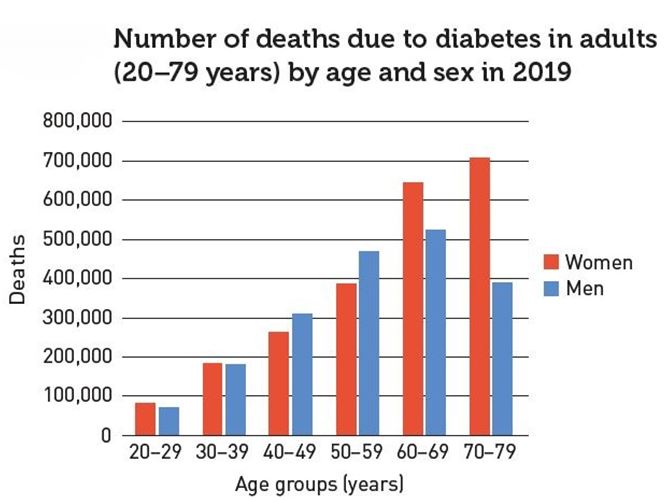
Market growth
With the awful increase in the prevalence of diverse hormone-related medical conditions, like Endocrinology, Diabetes, Obesity, and Endocrinology, the world market for endocrinology medicine market has been perceiving a motivating surge in its overall size and valuation. Since the prevalence rate of diabetes is exceptionally high across the globe, fueled by an unhealthy diet and also the reducing involvement of customers in physical activities, the world market is likely to retain a high-paced rise in the coming years. The endocrinology medication market in the Americas is anticipated to achieve USD 41 billion by 2020, growing at a CAGR (Compound annual growth rate) of over 6%. The endocrinology medication market in EMEA can go above USD 16 billion by 2020, growing at a CAGR of over 6%. The medicine medication market in APAC is predicted to exceed USD 14 billion by 2020, growing at a CAGR of over 7% key suppliers being Novo Nordisk, Sanofi, Merck, Eli Lilly, AstraZeneca, and Abbvie. Due to the high occurrence of diabetes, the demand for diabetes medicine is beyond other products. Researchers expect this trend to stay thus over succeeding few years, leading to the high rate of growth of the diabetes drug segment. The introduction of novel drug therapies and also the presence of strong product pipelines during this market for the treatment of both varieties of diabetes are possible to add significantly to the increase of this segment in the years to come.
Geographically, endocrinology drugs market is segmented into Latin America, North America, Europe, Asia Pacific and MEA. In 2014, North America accounted for a considerable share in the endocrinology drugs market. Major issues that accredited towards this large share include increased prevalence of endocrine diseases coupled with increasing usage of hormone replacement therapies and reimbursement policies by the government. Asia Pacific is anticipated to witness growth at a relatively faster rate over the forecast period owing to rise in predominance of growth hormone insufficiency and expected growth of development and research in the region. Increase in incidence of endocrine gland and diabetes associated cancer such as end stage renal disease is predictable to produce a positive effect on endocrinology drugs market of the region. Increased awareness among the general population about rarely occurring endocrine disorders such as vulvar and vaginal atrophy due to menopause and dyspareunia, are further expected to fuel the growth of market size in the area over the forecast period. Various research paradigms carried out such as introduction of novel drugs and combination pharmaceuticals for the treatment of endocrine disorders is also expected to increase the region’s growth.
List of Societies and Association related to Human Metabolism, Obesity and Diabetes.
- All India Association for Advancing Research in Obesity
- The Philippine Association for the Study of Overweight and Obesity
- The Egyptian Medical Association for the Study of Obesity (EMASO)
- Hong Kong Association of Study of Obesity (HKASO)
- Diabetic Association of India
- All India Association for Advancing Research in Obesity (AIAARO)
- American Public Health Association
- National Lipid Association
- Malaysian Association for the Study of Obesity (MASO)
- California Medical Association Foundation
- This Stigma of Obesity - Association for Psychological Science
- Association for Physical Activity, Diet, and Obesity Measures
- Obesity - American Beverage Association
- Obesity Management Association (OMA)
- WHO | Obesity
- Associations of Physical Activity, Obesity, and Serum Lipids
- Associations of Obesity, Alcohol abuse, and Smoking
- Associations between Short Sleep Duration and Central Obesity
- Dieticians Association of Australia
- Associations between Short Sleep Duration and Central Obesity
- Dieticians Association of Australia
- Association of Parental and Child Overweight and Obesity
- Association of Chronic pain and Obesity
- North American Association for the Study of Obesity Association for Nutrition
- Association of Obesity, Physical Activity, and Cancer
- Associations of Urban Environment and Obesity
- Association of Perinatal Endocrinology and Metabolism (PEM)
- ICCA Association of Database Endocrinology
- Endocrinology Association of Naturopathic Physicians
- Public Health Association of Australia
- European Neuroendocrine Association
- American Association of Clinical Endocrinologists
- American Obesity Treatment Association
- Obesity Medicine Association
- World Obesity Federation
- American Obesity Association (AOA)
- Association for the Study of Diabetes
- American Medical Association
- All India Association for Advancing Research in Diabetes
- Childhood Obesity - American Heart Association
- American Obesity Treatment Association
- Associations of Television Content Type and Obesity in Children
- Social Science of Obesity
- European Association for the Study of Obesity: EASO
- American Obesity Association (AOA) – Obesity
- American Heart Association
- IFSO | Obesity & Bariatric Surgery
- Physical Activity and Obesity Association
- Albanian Society of Endocrinology
- Association of Endocrinologists and Diabetologists of the Republic of Srpska
- Austrian Society for Endocrinology and Metabolism
- Indian Association of Endocrine Surgeons (IAES)
- European Association for the Study of Obesity (EASO)
- International Association for the Study of Obesity (IASO
Researchers trace the molecular roots of potentially fatal heart condition
Research using heart cells from squirrels, mice and people identifies an evolutionary mechanism critical for heart muscle function. Gene defect that affects a protein found in the heart muscle interferes with this mechanism to cause hypertrophic cardiomyopathy, a potentially fatal heart condition. Imbalance in the ratio of active and inactive protein disrupts heart muscle's ability to contract and relax normally, interferes with heart muscle's energy consumption. Treatment with a small-molecule drug restores proper contraction, energy consumption in human and rodent heart cells.
Be a part of Human Metabolism Conference 2020 for more updates!!!
Conference Highlights
- Diabetes Mellitus
- Cardio Metabolic Disorder
- Nutrition and Human Metabolism
- Obesity
- Diabetic Kidney Disease
- Advanced Treatment for Diabetes
- Diabetes and Weight Loss
- Diabetes Oral Medications
- Pediatric Endocrinology and Metabolism
- Endocrine-Related Tumors
- Advances in Endocrinology Metabolism
- Diabetes Complication and Management
- Molecular Metabolism
- Diabetic Eye Diseases
- Neurometabolic Disorder
- Child Nutrition and Obesity
To share your views and research, please click here to register for the Conference.
To Collaborate Scientific Professionals around the World
| Conference Date | June 22-23, 2020 | ||
| Sponsors & Exhibitors |
|
||
| Speaker Opportunity Closed | |||
| Poster Opportunity Closed | Click Here to View | ||
Useful Links
Special Issues
All accepted abstracts will be published in respective Our International Journals.
- Journal of Diabetes & Metabolism
- Endocrinology and Metabolism: Open Access
- Endocrinology Research and Metabolism
Abstracts will be provided with Digital Object Identifier by













